Acting
The acting programme at the Danish National School of Performing Arts trains actors for all professional acting work fields. This includes traditional theatre, film and TV roles and self-producing work.
Being an actor requires a high level of empathy and you must be able to translate a dramatic text with presence and originality through the conscious use of body and voice.
The programme at the Danish National School of Performing Arts is based on an understanding of the actor as a creative and interpretive performing artist. In addition to gaining a solid foundation of skills, you will learn to reflect consciously on your own artistic practice and to develop artistic projects individually and in artistic communities.
The main focus of the programme is dramatic training including character work, interaction methods, improvisation and many genre-specific skills. It also includes working with the body, voice and breathing. Through subjects such as dance, physio drama, stage fighting and body awareness, you will learn to master the body in order to build nuanced artistic expression. In the same way, you will work on your voice and language skills through training in speech, voice, language, singing, ensemble singing and musical understanding.
The ability to collaborate and participate in collective processes is essential for actors. Through the dramatic training and programme-specific and interdisciplinary projects you will practise how to collaborate with others – with actors and with other performing arts professionals – and how to work on your individual expression as part of an overall concept and style of a production.
The programme fosters a close connection between practice, theory and reflection. Alongside the artistic work, you will garner knowledge of subjects such as theatre theory, theoretical acting methods, genre awareness and historical eras in the performing arts. This will allow you to place your work in relation to the development of the performing arts and society as a whole.
ONE PROGRAMME – THREE CITIES
The school admits students to the programme in Aarhus, Odense and Copenhagen. The general framework of the programme remains the same, but its practical organisation and specific courses differ from campus to campus, just as the environments are naturally different. In Aarhus, there is a close collaboration with Aarhus Theatre and with the playwriting programme (which is based on the same campus). Odense has a close collaboration with Odense Theatre and shares a building with the Danish National Academy of Music, while in Copenhagen, students on the acting programme work closely with students from all the other programmes and specialisations at the campus.
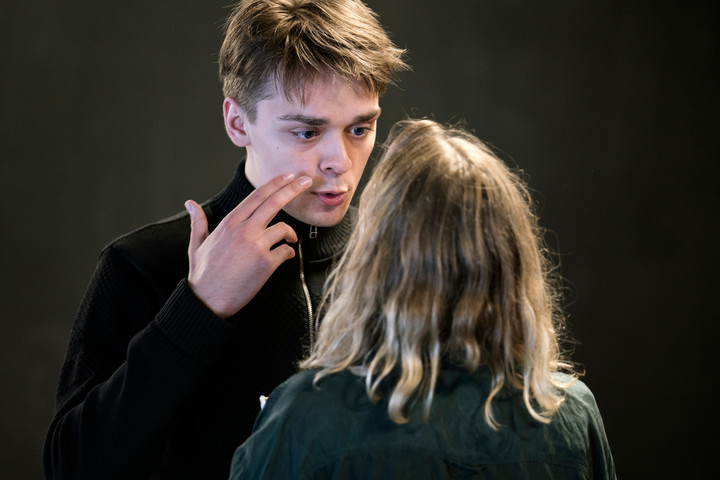
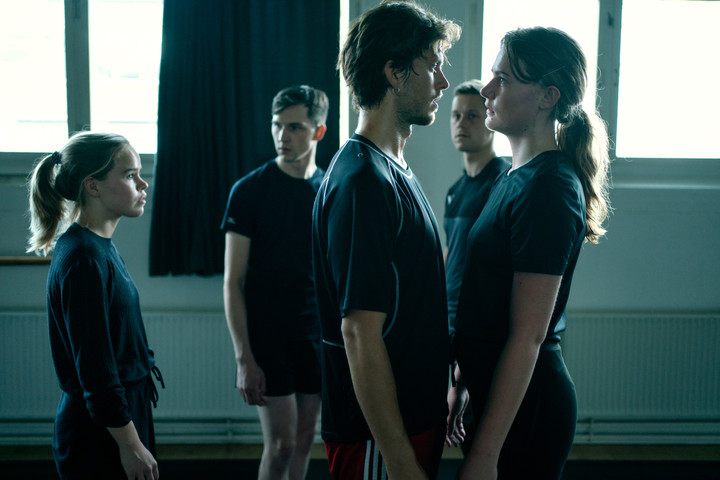


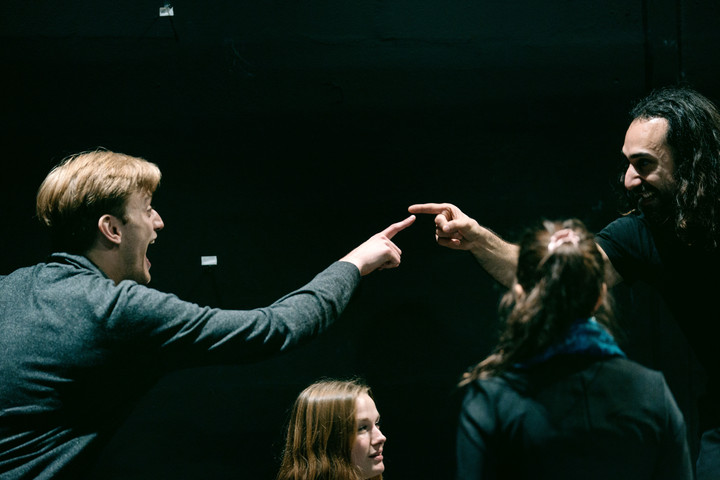
programme STRUCTURE
Throughout the programme, the main emphasis is on subjects relating to the categories of dramatic training and body and voice. Alongside these practical subjects is more theoretical teaching, which supports the artistic work. The specific subjects and courses will depend on whether you are enrolled in Aarhus, Odense or Copenhagen.
Each spring semester there is a project or a performance, in which you'll have the opportunity to put everything you've learned into practice as an actor. In the projects you will generally work with other acting students, and sometimes also students on other programmes.
Meeting the audience is a central part of being an actor. As you progress further along the programme, your work will more and more often culminate in showings with external audiences. Virtually all students also have an internship at a theatre or in a performing arts production during the last year of the programme, where they learn to work within a professional context. The programme concludes with a graduation performance. In Aarhus and Odense, the performances are produced in collaboration with Aarhus and Odense Theatres. In Copenhagen, the graduation performance is a multidisciplinary project involving students from Acting, Performing Arts Production, and Theatre and Performance Making.
Throughout the programme, you will be taught entrepreneurship, which is a subject that deals with how you can apply your skills and competencies in a diverse labour market after graduation.
STUDY FORM AND STUDY ENVIRONMENT
In most classes you are together with the rest of your year group at the Acting programme. You must be prepared to become part of an intense and close study environment, where cooperation, inclusiveness and the acceptance of differences are prerequisites for creating a positive, dynamic and developing learning space.
In addition to group classes, there are also individual courses. These are courses in skills such as singing or speaking, where you will be taught alone.
When working on projects, there will be times when you will organise your own work to a greater extent, in cooperation with your fellow students and with guidance.
The acting programme is a full-time course. You will be at the school all day, and there may be projects that require you to be present in the evenings and on weekends as well. In this way, the programme reflects working life as a professional actor. Attendance is mandatory for all academic activities.
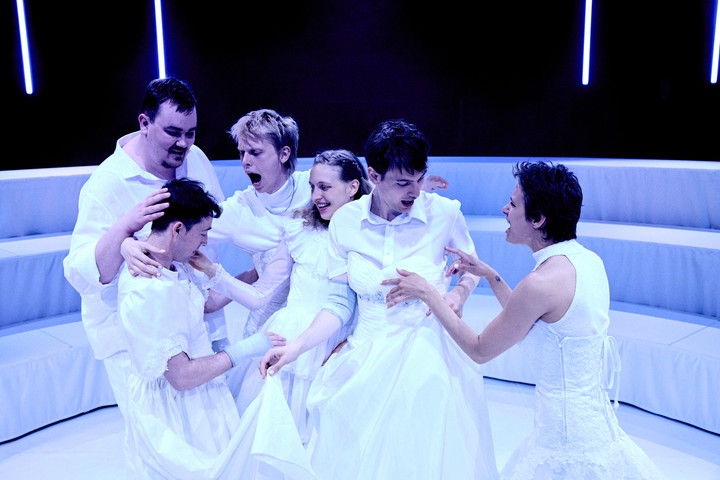
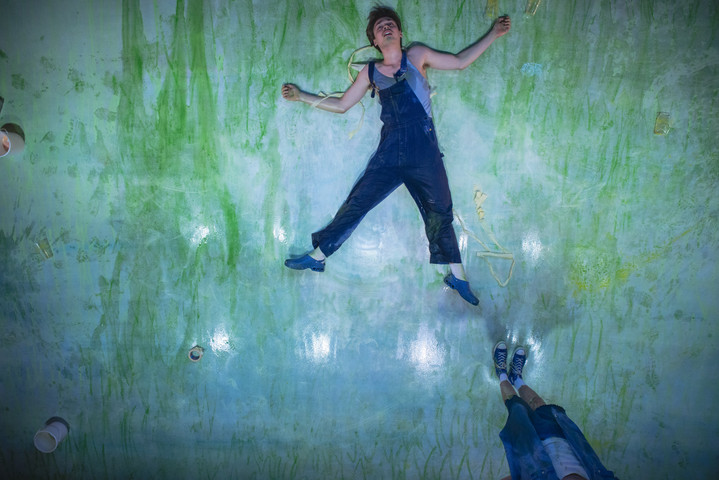
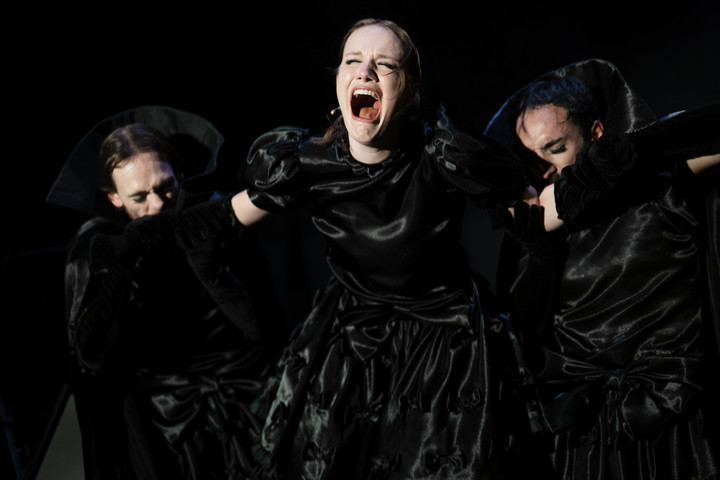
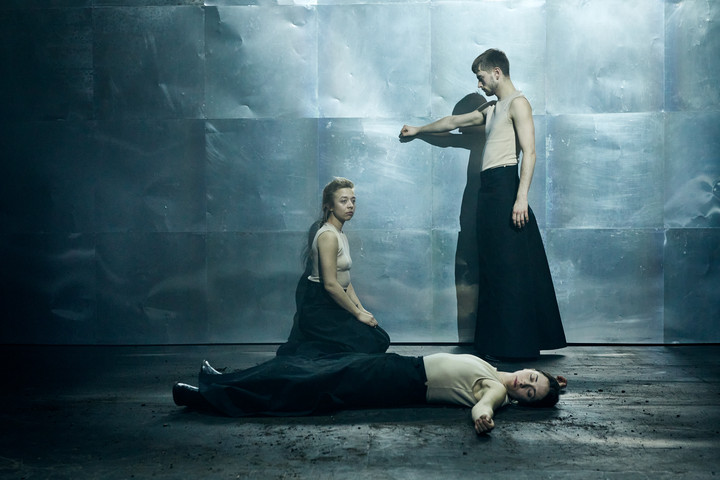
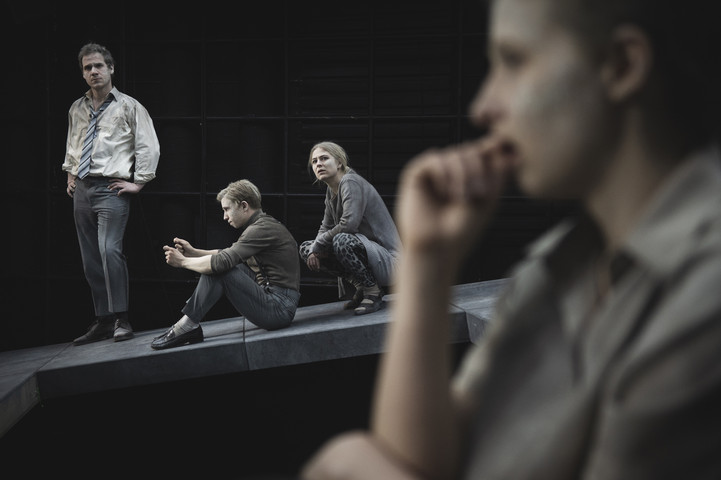
CAREER and working life
The most common career for graduated actors is participating in performances at established theatres or in film and TV productions in Denmark or abroad. Actors also often supply voice for film characters and speak podcasts and audiobooks. Some actors supplement their own acting work by teaching acting at private acting schools or folk high schools. Many actors also work as self-producing artists within the free field of the performing arts (i.e. without being associated with a specific stage) – often as part of an artistic collective or company.
The vast majority of the work is freelance and project-based, and it is normal to be involved in 5–10 projects throughout the year and to work on several projects at the same time, with rehearsals for one performance during the day and showings of another performance in the evening.
Larger theatres typically have a fixed ensemble of actors. Approximately one in five actors are permanently employed by a theatre.
ADMISSION TO THE ACTING PROGRAMME
20 students are admitted to the programme once a year – seven students in Odense, seven in Copenhagen and six in Aarhus. When applying, you must indicate the department to which you are applying.
Note that the application deadline is typically in December of the year before the start of the course.
All students are admitted based on a series of auditions. The admissions committee assess applicants’ suitability based on set criteria. The first part of the audition is the same for all three departments, but if you progress past this point, entrance tests for each department will vary.
The conditions and audition criteria apply to Danish as well as international Full Degree students.
Find guidance on how to apply to the programmes and the application deadlines here.